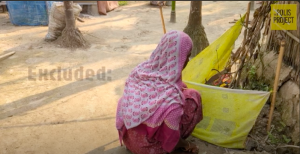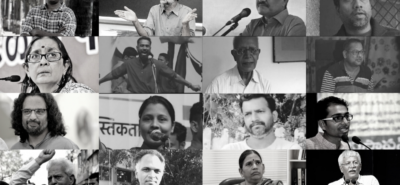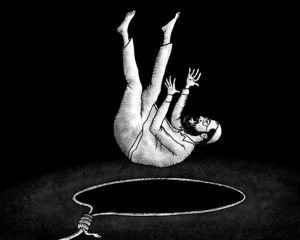
- Documentary
The strange case against the Bhima Koregaon political prisoners

In this video, The Polis Project reconstructs the events leading up to the arrest of the sixteen political prisoners implicated in the Bhima Koregaon violence along with the most recent developments that highlight the ongoing surveillance of dissident voices, the tampering of evidence, and the irregularities that accompanied the investigation.
Sixteen individuals across India have been arrested since 6 June 2018 under the Unlawful Activities Prevention Act (UAPA). They are human rights defenders working for the democratic rights of India’s poorest and most oppressed: Dalits, Adivasis, indigenous peoples, and women. All of them have been outspoken critics of Hindutva.
On 31 December 2017, the Elgar Parishad, a meeting with over 35,000 people forming an anti-caste and anti-fascist front, took place in Pune. The following day, many of those present in Pune – along with thousands of Dalits – attended the celebration of the 200th anniversary of the battle of Koregaon. A right-wing Hindu Nationalist mob attacked this celebration.
A Police appointed fact-finding committee confirmed that Hindutva outfits had “pre-planned” the violence. Two sets of First Information Reports were filed in January 2018 based on different narratives.
As the FIR filed by the Dalit groups was ignored, a petition was filed in the Bombay High Court demanding accountability. The Bhima Koregaon Commission of Inquiry set up in February 2018 to look into the violence against Dalits was abruptly terminated in April 2020.
To date, no action has been taken against any of the accused.
Charges and Procedural irregularities
In a deliberate attempt to create fear, confusion, and misinformation, eye witness testimonies were ignored, and a case against 16 individuals was built over three years by conflating events and fabricating evidence.
These sixteen political prisoners have been charged with acting on behalf of outlawed Naxalite and Maoist organizations, Plotting to assassinate the Prime Minister, and Making inflammatory speeches at the meeting in Bhima Koregaon. It is important to note that none of the accused was physically present at the 2018 event.
As the accused languish in jail, the case against them is fraught with irregularities: baseless allegations, unjustified pre-trial detention, denial of bail, fabricated evidence, gross negligence by the Police and the National Investigation Agency, arrests without witnesses, seizure of documents without due process, Police leaking false documents to the press, prejudicial public statements by the Police, statements by the Police challenging the Courts’ authority over these cases and filing of charges without evidence.
Evidence
An overview of the case presented by the investigation agency makes it abundantly clear that the information presented before the court was asserted without evidence and tampered evidence presented as a fact of complicity. Both of these fail the basic test of evidence under the Indian criminal jurisprudence. Arsenal, an international team of forensic analysts, conducted an independent evaluation of a clone of the computer, hard drive, and associated USB drive of Rona Wilson’s, one of the BK 16 political prisoners. The forensic report by Arsenal found that the computer was compromised for over twenty-two months and that the attack was intended for two reasons: surveillance and planting incriminating documents using NetWire, a remote access malware infrastructure. The top 10 documents used in the charge sheet against Rona Wilson and other BK16 political prisoners were all planted by the attackers. For each of the ten documents, Arsenal was able to identify the time and date of creation and the specific session during which files were planted.
The report also makes it clear that the attack was deliberate and meticulously planned by a well-resourced agency. In the report, Arsenal characterizes this attack as “one of the most serious cases of evidence tampering” ever encountered by his team. Arsenal’s Mark Spencer characterized the attack as “one of the most serious cases of evidence tampering.”
Since the report was published Rona Wilson has approached the Bombay High Court with a plea to quash the FIR against him and the other Bhima Koregaon political prisoners.
The plea states that “he and the co-accused are being prosecuted with mala fide intentions, institutional support, with politically motivated agenda, through which they have amplified the institutional bias against him and other co-accused. He is being targeted for his political views through fabricated and false evidence.”
The investigation raises some difficult questions about the nature of charges, the evidence, and the procedural improprieties that characterize the prosecution of the BK16 political prisoners.




